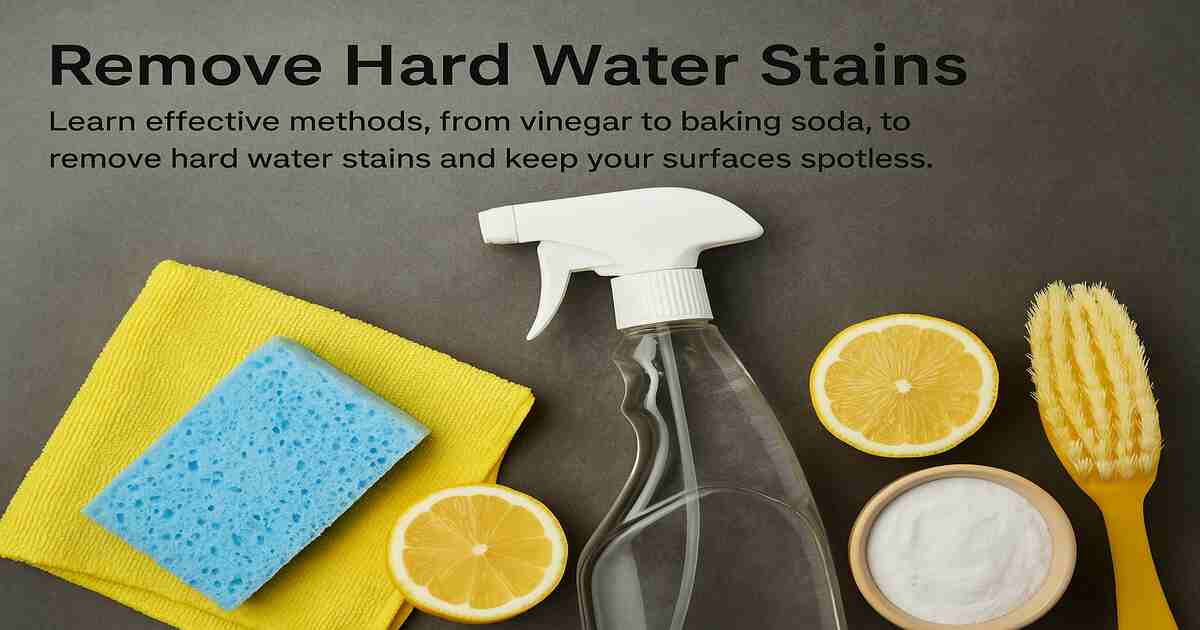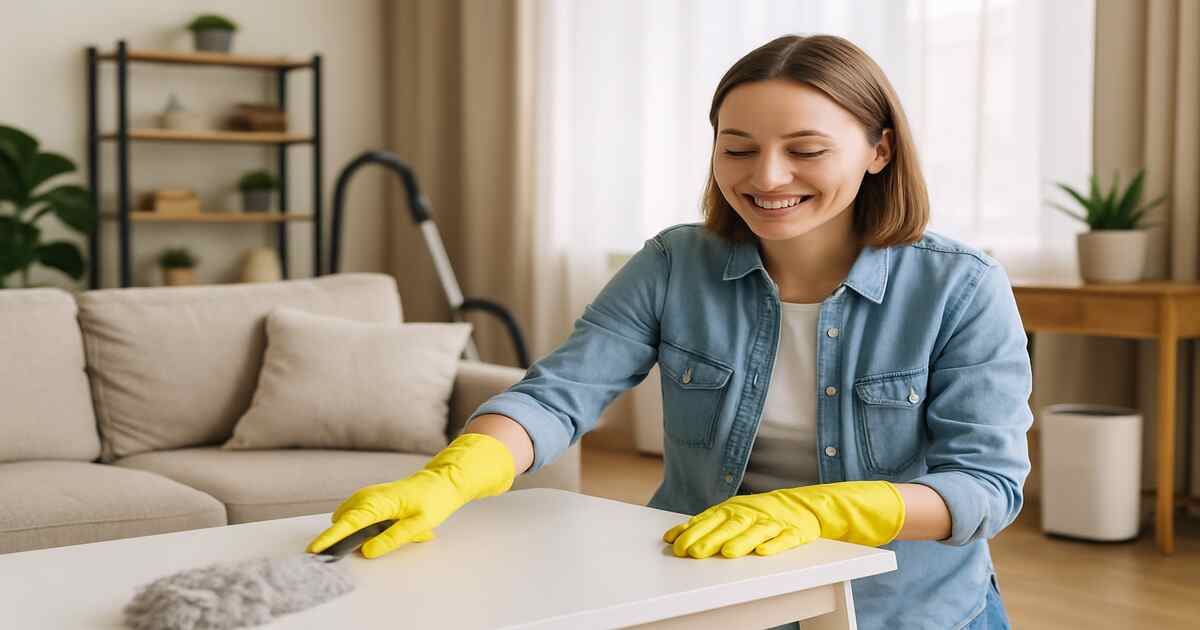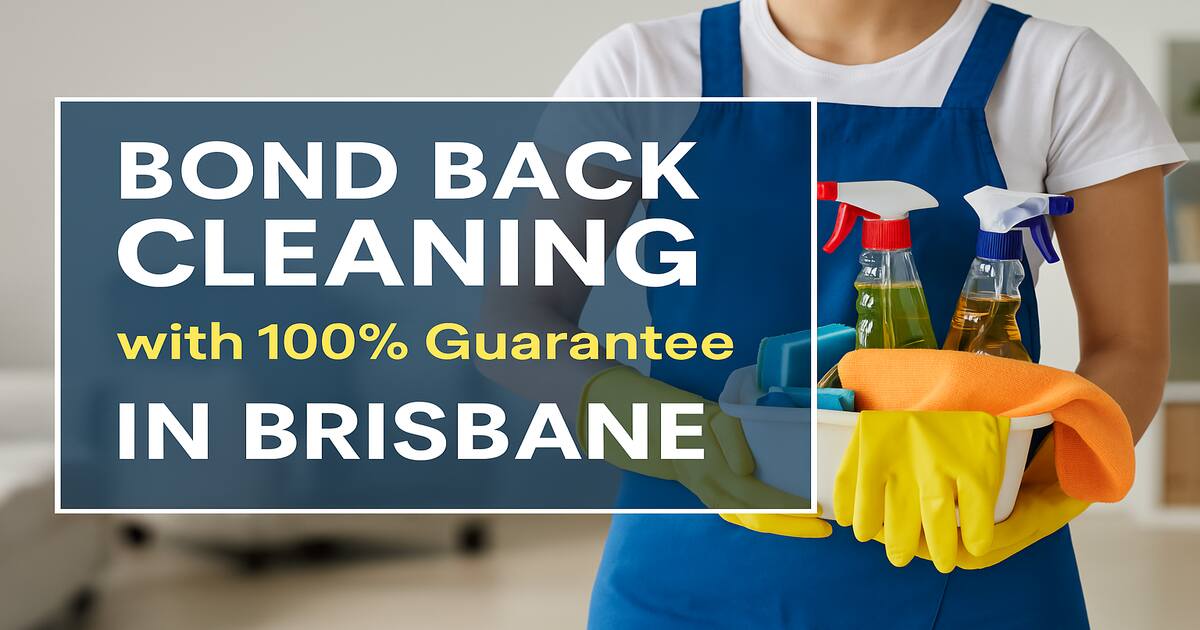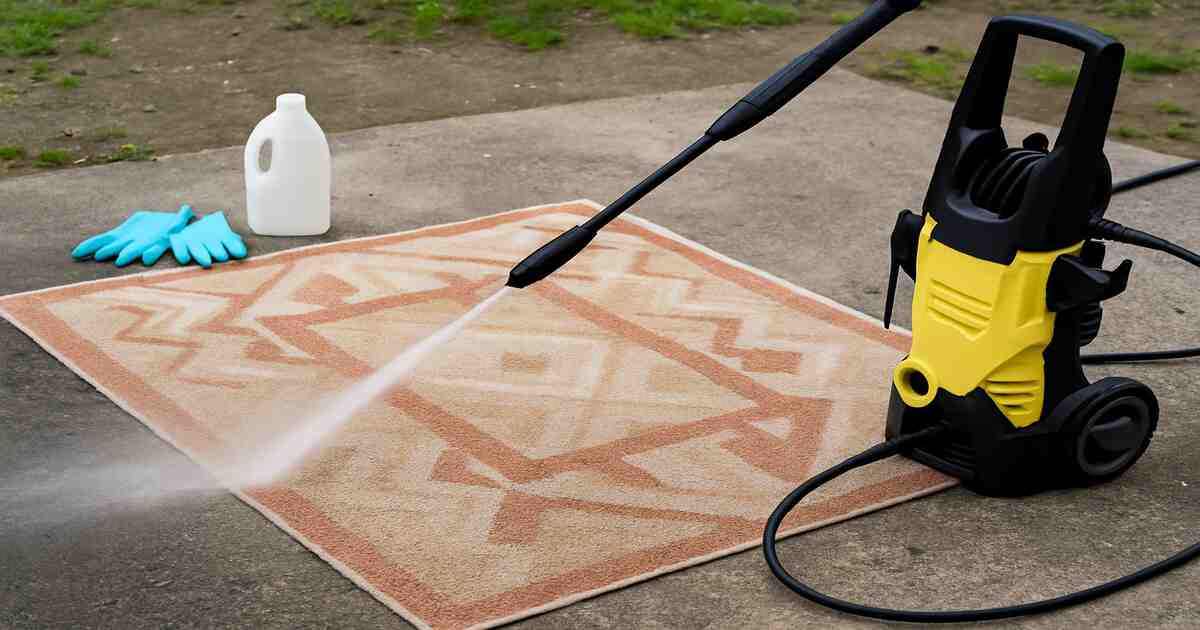
Remove Hard Water Stains: 8 Easy Cleaning Tips
Have you ever wondered why those shimmering glass shower doors or sparkling faucets seem to lose their charm no matter how much you clean them? That cloudy residue combined with a white chalky buildup that you are witnessing, are probably hard water stains. They pose more than just a nuisance; if neglected, they can make your home feel less clean and eventually pose a threat to your fixtures.
If you feel sick of trying to scrub off tough stains while getting nowhere, don’t worry, there are so many homeowners in your position. Hard water is a common issue; it is perfectly safe to drink, but it certainly accounts for nightmares in bathroom and kitchen aesthetics. But, with a little technique and some good products, many of them natural, you can quickly restore that transparent sheen to your glass and fixtures.
1. Understand What You’re Up Against
The first step toward bond clean in Brisbane tips requires you to know what hard water consists of. The mineral components of calcium and magnesium exist in significant quantities inside hard water. The minerals in hard water create visible spots when the water evaporates which remain on glass surfaces and chrome and steel materials.
The accumulation of these minerals grows stronger with time making it more challenging to remove them. The sooner you begin addressing the problem the simpler your cleaning task will become. Regular maintenance serves as a defense mechanism against permanent glass etching and metal fixture corrosion.
2. Use Vinegar for a Natural Clean
You can also use white vinegar to get rid of hard water stains very effectively as it acts as a cheap and efficient cleaning agent. Since white vinegar is a cheap and effective cleaning agent, by it is possible to get rid of hard water stains very effectively. The mineral deposits are dissolved with the help of the mild acid but the surface is not damaged. To make your solution, mix the white vinegar and warm water in proportion (with 1:1 ratio) using a spray bottle. Apply that solution on the stains with spray and wait 5-10 minutes.
A microfiber cloth or non-scratch sponge allows you to scrub stains gently. For difficult stains apply vinegar-soaked paper towels directly on the affected surface then wait 15–20 minutes before wiping it away. After cleaning with water you must dry the surface completely to avoid new stains from developing.
3. Try Baking Soda for Extra Scrubbing
Vinegar serves as a cleaning solution but baking soda provides an effective alternative when vinegar does not work on tough stains. You should apply baking soda on wet surfaces through direct sprinkling or you can prepare a paste by mixing baking soda with water drops. Take a soft sponge to gently scrub the paste over the stains and while doing this you should also be applying the paste to the affected areas.
Baking soda provides a mild abrasive effect that allows you to get rid of mineral deposits with less effort and at the same time, it is good for the surfaces in your home. After you have finished, be sure to rinse water thoroughly and then wipe with a dry cloth so that there are no streaks left.
4. Lemon Juice to Give a Pleasant Odor and a Shiny Look
Being a natural acid, lemon juice is just like vinegar when it comes to getting rid of mineral deposits, however, it also gives a nice and refreshing citrus smell to the room. Besides, it is up to you if you want to use it by itself or combine it with some salt in order to get rid of the difficult stains on the faucet, showerhead, and glass panels.
Use a lemon half to directly apply its juice onto the stained surface. The juice needs to rest for several minutes before you clean it away using a damp cloth. The final step involves rinsing followed by drying with a microfiber cloth to restore the original shine.
5. Clean Showerheads with a Vinegar Soak
Uneven water spray from your showerhead usually indicates that hard water minerals have blocked its nozzles. You should fill a plastic bag with white vinegar and secure it around your showerhead with a rubber band until all the nozzles stay submerged. The solution needs at least several hours or an entire night to soak before removal.
Use an old toothbrush to clean the nozzles after you take off the bag because some deposits have become loose. Running hot water for one minute will clear out any lingering residue to provide better water flow and a cleaner appearance.
6. Commercial Cleaners for Quick Results
You can find numerous hard water stain removers at retail outlets which work quickly on heavy buildup or provide immediate results. Always select products that say they are safe for glass or chrome and adhere to the manufacturer instructions.
The use of abrasive cleaners together with steel wool should be avoided because they will cause damage to your fixtures through scratches. When handling strong chemical-based products put on rubber gloves and make sure to ventilate the room adequately.
7. Avoid Future Buildup with Frequent Upkeep
After completing stain removal you need to establish regular surface maintenance practices. The following methods will help you:
- After every shower you need to dry glass surfaces because mineral water deposits will form otherwise.
- A water softener system should be installed when hard water remains a constant problem in your residence.
- Using a daily shower spray that contains vinegar and water prevents buildup formation.
- Perform weekly cleaning of fixtures to maintain their glossy appearance while avoiding stains from developing.
- Maintaining an active cleaning schedule results in significantly reduced time requirements for intensive deep cleaning sessions.
8. Protective Coatings for Glass and Metal
Protective coatings along with sealants applied to shower glass and fixtures establish essential defense mechanisms. These products create water-repellent surfaces which prevent minerals from sticking to the surface. The products deliver their greatest value to areas that receive constant use such as bathrooms and kitchens.
Applying car wax or special glass protectants enables you to both prevent water spots and streamline your cleaning routine. Always check the product is designed for home interior use and follow the exact instructions provided.
Conclusion
The difficulty of hard water stains proves manageable through proper methods. The combination of natural treatments with physical effort along with preventive maintenance enables you to restore glass and fixtures to their original shine. The key to success with DIY solutions including vinegar and baking soda or commercial cleaners remains consistent application.
The next time you observe cloudy streaks or crusty faucet rings you should avoid feeling stressed. Use your preferred deep cleaning methods to achieve the polished finish your home needs.



